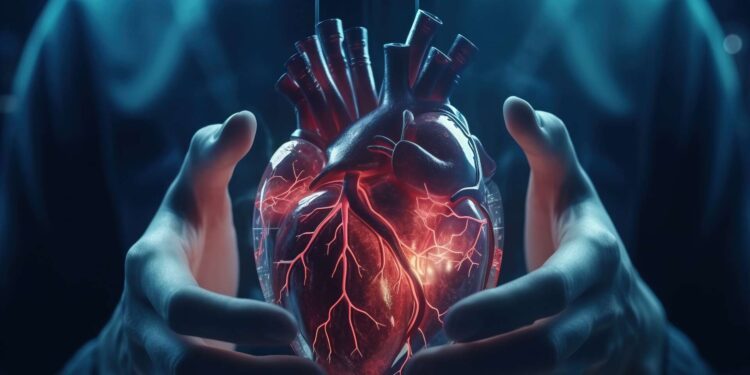The human heart has a very specific metabolism, which makes it particularly difficult to treat during cardiac events. Researchers from the Max Planck Institute were interested in the question, and they discovered the role of a gene in the regeneration of heart cells.
This will also interest you
(ON VIDEO) The first synthetic and functional heart fabric printed in 3D Researchers at Harvard University in the United States have created human heart tissue incorporating…
During a heart attack, the heart is damaged. As it heals, it produces new rigid tissues, capable of holding the muscle in its place but causing it to lose part of its mobility, which increases the risk of recurrence or heart problems. How to avoid this loss of mobility? A study published in the journal Nature by researchers from the Max-InstitutPlanckPlanck explores the question.
The answer lies in cellular regeneration. While most of our tissues are capable of reforming themselves, this is not the case for heart cells which lose this ability after birth. The fault is a change in their metabolism: unlike the other muscles of the body, the heart no longer metabolizes sugars through the process of glycolysis, but fats. via the process ofoxidationoxidation fatty acids. This modification modifies the activity of many genes, which alters the ability of heart cells to divide, and therefore to regenerate.
Regenerating a heart by inhibiting a gene
Researchers at the Max Planck Institute therefore tried to change the metabolismmetabolism with a mouse’s heart. To do this, they inhibited the Cpt1b gene, essential for the oxidation of fatty acids. “We then observed that the hearts of these mice began to grow again”, the number of cells almost doubling! testifies one of the main authors of the study, Xiang Li, in a press release. The researchers then induced heart attacks in the mice whose gene had been silenced and in a control group; the results are clear: unlike the control group, the mice with the inhibited gene had almost no lesions just a few weeks after their cardiac arrestcardiac arrest !
L’inhibitioninhibition of the Cptb1 gene actually triggers a chain reactionchain reaction : it is responsible for a significant increase in the activity of the KDM5 enzyme. This enzymeenzyme is itself responsible for the decline in performance of certain genes… Decrease in performance which leads to immaturity of cardiac cells. These then regain their ability to regenerate.
The path to human treatment based on Cptb1 inhibitors is therefore open and, although the road is still long, researchers are now saying: convinced (of being able) in the future to therapeutically stimulate the regenerative capacity of the heart “.



